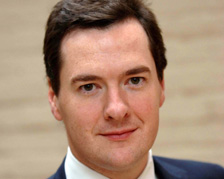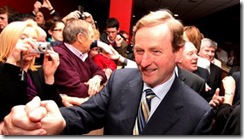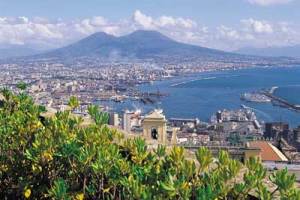We tend to think that within the UK, it is only Northern Ireland which has identity politics. Putting that conventional thought another way, Northern Ireland’s politics would be identity politics along a Unionist / Nationalist axis, whilst the rest of the UK is purely left-right politics. If only it were that simple. In the UK, there is actually a mixture of left- right and identity politics across the board. This post is about the interplay between left-right ideology politics and the politics of identity.
Firstly, I compare crucial traits of left and right ideology. Within the ideologies of the political parties that make up the left and the right, it is the approach to selfishness and greed which forms the visible dividing line. To the left, selfishness and greed is an abomination. To the right, selfishness and greed is not intrinsically evil. Instead, it is a feature of human nature which makes an essential contribution towards a successful, wealth-creating economy.
A simple example of left-right ideology in political action is the attitude of the political parties towards large bonuses paid to senior banking employees.
Politicians on the left were naturally inclined, as Vince Cable was, towards forcing the Banks to “take a haircut.” Those on the right were more inclined to leave things as they were in order to allow the banking industry to maintain its competitive edge. The Conservative Party were determined to allow the banks their freedom. The Labour Party, knowing that most of the population view large bank bonuses to be repugnant, were determined to put the Coalition under pressure and called for an extension of the bonus tax.

George Osborne - took pragmatic decision on Bank tax levy
The Conservatives were not going to “kill the goose that lays the golden egg” as they regarded it. However, they saw the force of the political attack from the left. To pacify that attack, George Osborne announced an increased levy against the Banks amounting to an extra £800m. This was nothing like what the left wanted and was little more than tokenism. However, it conveyed the message that the Government was wagging a finger at the banks. The media analysts did the rest for the Government by explaining why the Government did not take a more substantial levy.
The Conservative view that selfishness and greed have to flourish is not unqualified. There has to be something in it which benefits the nation. The National boundary is important in this respect. If a businessman is taking a risk which will have no impact on the national interest, the conservatives will not be concerned that he succeeds or fails. Similarly, if a conservative political party is riding high in another country, we do not care. What do we care, for example, whether the Centre – Right party in Germany (the CDU) is successful? The point I make here is that the nation state is a crucially important part of conservative ideology. Taking that point further, Conservatism in its purer form is a type of centre-right nationalism.
Left wing ideology is different in that sense. It is a much simpler, more morality-based ideology. It is much more universal in the sense that it crosses international boundaries. The left is much more likely to be in sympathy with its counterparts in other countries.
But the left is underpinned by another political dimension – that of the working class identity. Most of the time, there is no difficulty advancing the ideology of the left and the working class identity together. Occasionally, however, there is a clash. It happens when working class nationalism surfaces. Working class nationalism is a space occupied by what is termed “the far right” (to call these groups ‘right wing’ is technically incorrect). These political groups set out to exploit racial and jingoistic prejudice which happens to be much more prevalent within the working class population. That is why the Labour Party regularly expresses its concerns about the threat of the BNP. To combat that pressure, the left has to make its own compromises. An example of that occurred two years ago when Gordon Brown was forced to pledge ‘British jobs for British workers’
That, however, is as difficult as it gets for the left. The fault lines which affect the politics of the right tend to occur when there are conflicts of National (and polity) identities. Conversely, the working – class identity is a cross-border one and tends to insulate the left from similar problems. That is why I believe that Labour have not suffered as much by the rise of Scottish Nationalism as have the Conservatives.
 The failure to recognise and respond to the potency of polity / National identities has been a cause of Conservative Party policy failure in Ireland a century ago and in Scotland more recently. In 1955, the Scottish Unionist Party, previously the Conservative ally in Scotland, secured most of the parliamentary seats in the general election of that year. Today, the Conservatives hold only one seat.
The failure to recognise and respond to the potency of polity / National identities has been a cause of Conservative Party policy failure in Ireland a century ago and in Scotland more recently. In 1955, the Scottish Unionist Party, previously the Conservative ally in Scotland, secured most of the parliamentary seats in the general election of that year. Today, the Conservatives hold only one seat.
It is not just regional identity which is a problem for the Conservatives. As the EU has played a larger part in politics, the pan-European super-identity is being viewed increasingly by the UK electorate as an unwanted imposition. The problem for the Conservative Party is that when they are obliged to adopt positions on policy which are favourable to the hardcore Europhile nations like France, they are seen to be Europhiles themselves.
Worse still, for the Conservatives, they used to be the sole occupiers of nationalist centre-right political space. After serious divisions over Maastricht in the 1990s, UKIP was formed. In the 1997 General Election, it was reckoned that the presence of UKIP alone lost the Conservatives about 14 seats. Today, UKIP are a permanent presence on the European political scene. They have not yet won a seat in the UK Parliament but they were omnipresent at the 2010 General Election. After the Lisbon treaty was ratified, the Conservatives were forced to ditch their promise to hold a referendum on the treaty. Consequently, UKIP withdrew their support from the Conservatives. It has been suggested that turn of events cost the Conservatives an outright majority in the 2010 General Election.
In spite of everything, the Conservative Party, despite not attaining an overall majority in the UK Parliament, did find its way to power, albeit in coalition with the Lib Dems. Nonetheless, the Conservatives are right in the middle of some very serious challenges. They have probably done as much as they can, for the time being, to pacify the threat of UKIP. However, they still have a massive challenge in adjusting to the reality of devolution.
The Sanderson review on the electoral failure by Scottish Conservatives in the 2010 general election effectively by-passed the key question on whether they should form an independent centre-right party in Scotland. If the Scottish Conservatives show no sign of improvement in the 2011 Assembly elections, I believe it is imperative that this question is re-visited.
My view is similar in relation to Wales. Conservatives in Wales have not yet been adversely affected by the identity problem. Part of the reason for this is simply that the Welsh political identity was, historically, much weaker than that of the Scots. The Conservatives should not be complacent here. The developing Assembly politics in Wales will lead to a stronger political Welsh identity. The trick is to recognise this before it happens.
As for Northern Ireland, my views are well recorded in this blog. In the last couple of weeks, some of my writings elsewhere have been taken with offence by some Conservatives in Northern Ireland. For that, I sincerely apologise but my opinion does not change.
The Conservative Party will not succeed, electorally, in Northern Ireland without the changes that I have proposed. Even ignoring the Nationalist problem, most Northern Irish Unionists still look upon the Conservatives as an English Party. Even with the best financial resources, a new campaign manager, a new office, 18 constituency associations, a lot of hard work by the membership and the slaying of Beelzebub, they will still hit a “brick wall” on the identity problem alone.
Meanwhile, the DUP, which already has the massive advantage of incumbency, also has the advantage of having a regional identity. If Northern Ireland unionism does “morph” into a non-sectarian centre – right ideology, it is they who are most likely to take first possession of it.





